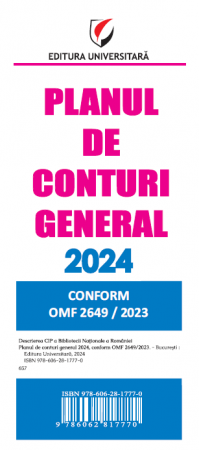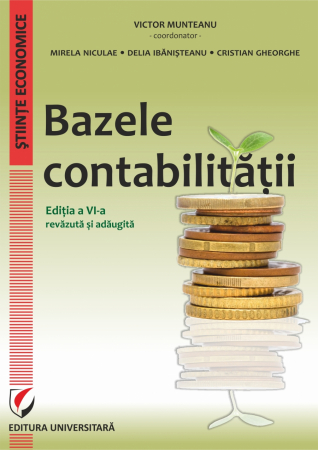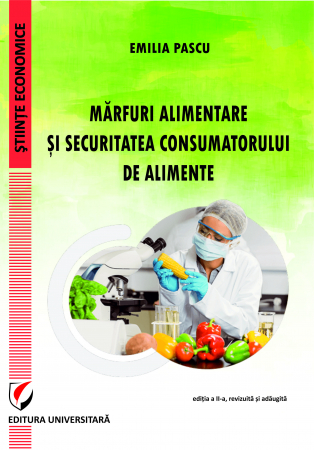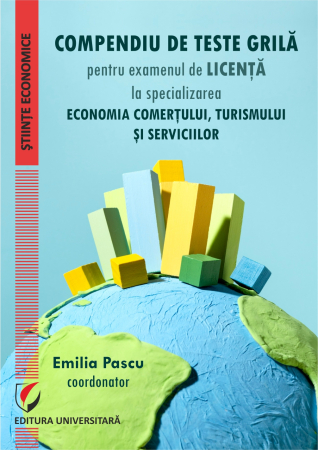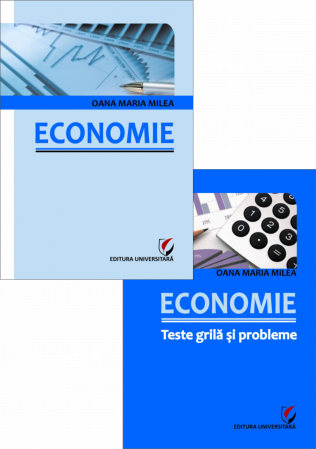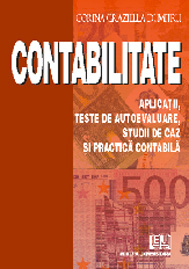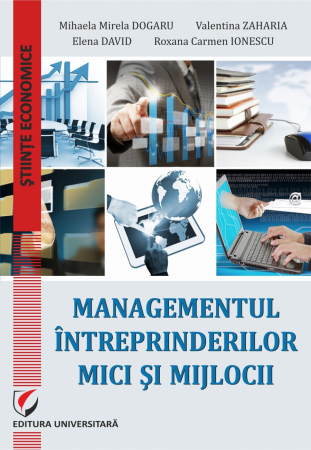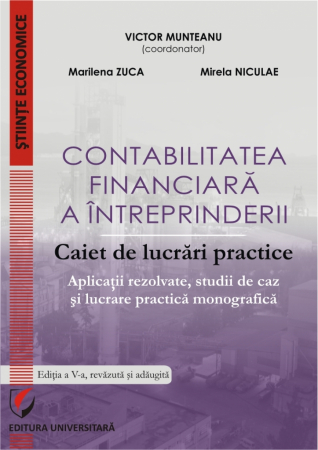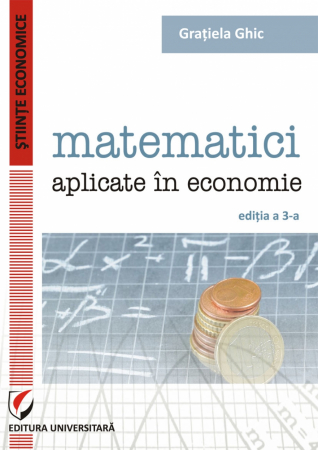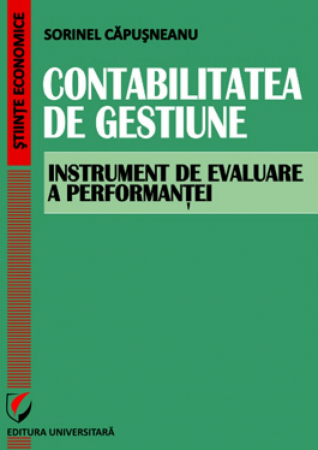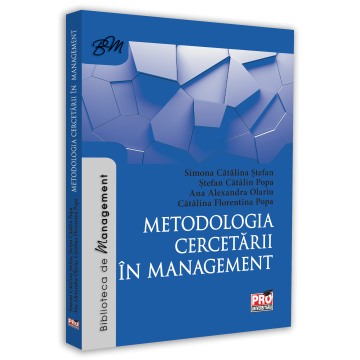ISBN: 978-606-28-1176-1
DOI: https://doi.org/10.5682/9786062811761
Publisher year: 2020
Edition: I
Pages: 240
Publisher: Editura Universitară
Author: Ion Verboncu
- Description
- Download (1)
- Authors
- Content
- More details
- Reviews (0)
The book is addressed primarily to managers of organizations - which offer methodological-managerial tools to reduce the unfavorable influences of the crisis or rescue from insolvency or bankruptcy - but also to specialists involved in restructuring or reengineering - who must act under the conditions of detailed knowledge of the content, advantages and limits of each modality. To them are added the students of the business and management faculties, from the perspective of enriching the baggage of economic and managerial knowledge.
-
Crisis Management Solutions. Organizational Restructuring or Managerial Redesign
Download
ION VERBONCU is a professor emeritus doctor at the Academy of Economic Studies in Bucharest.
He was born on July 11, 1953 in Tismana, Gorj County and graduated from the Faculty of Economics of Industry, Construction and Transport in ASE, in 1976, as head of promotion.
The 42 years of university career have been marked by notable achievements in the field of managerial, professional scientific research or in the services of the academic community.
The scientific research has materialized in almost 300 hundred specialized articles published in indexed journals in international databases in the country and abroad and numerous scientific communications at well-known national and international events.
The didactic and professional activity includes over 70 management books, as sole author, sole coordinator and main author or co-author.
The most recent editorial appearances are: Diagnosis of the organization (Diagnosticarea organizatiei ) (2020), Management of the organization in 360 questions and commented answers (Managementul organizatiei in 360 de intrebari si raspunsuri comentate) (2019); How do we drive? Between amateurism and professionalism (Cum conducem? Intre amatorism si profesionalism (2018); Managerial redesign of the organization (Reproiectarea manageriala a organizatiei) (2013); Management. Efficiency, effectiveness, performance (Management. Eficienta, eficacitate, performante) (2013).
He is Doctor Honoris Causa of the Commercial Cooperative University of Chisinau and laureate of some important national awards and distinctions: the award of the Romanian Academy for Management (together with Ovidiu Nicolescu), the distinction "Excellence for the entire activity", awarded by the Association of Romanian Economic Faculties, Romanian Academic Management Society (SAMRO) for the best management book in Romania published in 2018 (How do we lead? Between amateurism and professionalism (Cum conducem? Intre amatorism si profesionalism) Editura Universitara).
In the period 2000-2012 he led the Postgraduate Training School within ASE, contributing to the managerial improvement of over 5000 managers and specialists from public and private organizations in Romania.
Introduction / 7
1. The economic crisis. Management in times of crisis / 11
1.1. Terminological clarifications / 11
1.2. Defining the crisis / 19
1.3. Causes / 21
1.4. Forms of manifestation of the organizational crisis / 24
1.5. Managerial characteristics of crisis periods / 25
2. Possible solutions in time of crisis: organizational restructuring and managerial redesign / 34
2.1. Organizational restructuring / 36
2.2. Managerial redesign / 53
2.2.1. Business Process Reengineering / 53
2.2.2. Enterprise management redesign / 71
2.3. Comparative approach: organizational restructuring - BPR - managerial redesign / 83
2.3.1. What do we opt for? / 83
2.3.2. Organizational restructuring vs. managerial redesign / 86
3. Diagnosis and strategy - support for restructuring and managerial redesign / 93
3.1. Global diagnosis / 93
3.1.1. Preliminary documentation / 94
3.1.2. Analysis of the managerial and economic viability of the enterprise / 97
3.1.3. Causal highlighting of the main strengths / 101
3.1.5. Analysis of the external environment of the enterprise / 101
3.1.6. Determining the global viability potential of the enterprise / 101
3.1.7. The main strategic-tactical recommendations / 102
3.1.8. SWOT / 103 matrix
3.2. Management restructuring or redesign strategy / 103
4. Pragmatic aspects of the restructuring and managerial redesign of the enterprise during the crisis / 108
4.1. How to restructure a company in difficulty / 108
4.2. Management reengineering and enterprise efficiency / 173
5. Conclusions / 225
Bibliography / 236
We are going through a difficult period from all points of view - economic, social, political, managerial s.a.m.d. - created and maintained by the Covid-19 pandemic. The economic crisis is deepening and, practically, it does not only affect an organization or a country, but the world, without any discrimination. Specialists and politicians come up with solutions, feasible or less feasible, but they all demand money, as much money as possible. For companies, especially private ones, the financing possibilities diminish due to their worsening financial situation: lack of liquidity, high costs, constantly decreasing revenues, lost markets, also declining image. The most popular way out of the crisis is restructuring, seen as a real lifeline both for companies that went into insolvency (to avoid bankruptcy) and for those that register, in a certain period of time, an economic and financial decline. This rescue solution, trumpeted in most media by consultants as miraculous, has begun to be re-evaluated in terms of "purchase price". Thus, the restructuring of the Oltenia Energy Complex, found in a plan sent to the European Commission in August 2020, "cost" 2.4 million lei, obviously given that, at the end of the period provided in the restructuring and decarbonization plan, respectively the year 2025, there will be substantial structural changes in the performance of the largest energy producer in Romania. Unfortunately, there is very little or no talk about purely managerial solutions, which can contribute to the relaunch of economic operators, solutions that include important structural or procedural changes. One of these is the managerial redesign or reengineering of the enterprise management, by far the most important and complex way of managerial and organizational change known and applied quite timidly in Romania as well.
Any management specialist may wonder why purely managerial solutions are not agreed by practitioners? Why "go" only on trampled roads, some of them even regulated by law? Why is management, more in Romanian, leadership and management, part only of the vocabulary of managers, and not of the solutions they have to offer in solving some problems that the business is facing? We offer the answer.
First of all, many of those who lead and manage Romanian organizations (public and private enterprises, public authorities and institutions, etc.) do not know management! This aspect stands out especially in times of crisis. Among the forms of manifestation, we can invoke the managerial crisis, respectively the crisis of competence, with "stretching" on the vertical of the management system of the economy, from governors to organizations of all kinds.
The lack or the impermissible delay in the adoption and application of some solutions, the contradictory character of others, the lack of communication or the inefficient communication are all hypostases of the impotence generated by the incompetence.
Secondly, it is easier to fire tens or hundreds of employees out of the pen, under the cover of the so-called restructuring, than to try to find solutions that do not cause such a social disturbance or to be accompanied by some alternative ways of saving surplus staff - professional retraining, crisis and post-crisis investments
Thirdly, it is relatively easy to make a restructuring plan because thousands of existing consulting firms in our country are good at something like that, as opposed to a complex change of a managerial nature, for which the offer is less generous.
Fourth, the managers of the companies that opt for restructuring do nothing but align themselves with the Romanian "fashion" of the last decades in terms of organizational change. We insist on the phrase "a fad" because the expected results as a consequence of the restructuring studies did not rise to the desired level, being necessary to repeat such a scenario, until ... the disappearance of the company on the economic map of the country. The periodic restructuring carried out in different governments - especially at the level of public enterprises - has manifested itself as real "cold showers" for the respective organizations. These lasted several months, they passed, and the claim of the disappeared positions and, implicitly, their population with clientele personnel returned to the agenda of the preoccupations of the central or local authority, which pastors the respective enterprise. And, just like that, restructuring becomes ... cyclical, like the economic crisis. However, the current economic crisis is atypical, is generated by the pandemic and must be analyzed and "solved" by capitalizing on the possibilities offered by the theory of modern management, generating performance.
We warn that the restructuring will be approached in our work only from a managerial and economic point of view. The legal aspects - and, we must admit, are numerous - are not the subject of our concerns because we do not master them sufficiently, and the regulations in the field are so complex and cumbersome that they require solid legal knowledge. Also, both the restructuring and the managerial redesign are presented from the position of the enterprise, producer of economic goods.
The book we offer to our readers insists on the alternative to restructuring, called management reengineering, which involves redesigning (rethinking) and redesigning management processes and the management system of the enterprise from the perspective of capitalizing on the decisive role of management in its efficiency. The comparative approach of managerial restructuring and redesign, as ways of organizational and managerial change highlights the strengths and limitations of the two possible change solutions and facilitates the option of those who lead and manage Romanian enterprises for the most feasible way out of the crisis or amelioration of its unfavorable influences. The starting point in this approach is given by the phrase: change causes a crisis, and the crisis can only be overcome by change!
Our option for the second, respectively managerial redesign, is justified both by the arguments inserted in the paper, and by the desire to try to judge management with different eyes, as a priority factor of success or economic and commercial failure for any company, public or private.
Let's not forget a defining feature of the period we are going through, starting with the first part of 2020: the crisis is widespread at national and global level. Many economic agents have to restructure their business or redesign their management systems to cope with the changed business environment. The economy, as a whole, is endangered and needs to be restructured or rethought and managerially redesigned. We do not believe in apocalyptic scenarios, but we must recognize that humanity and, of course, Romania also face serious problems, economic, social, health. For this, the author of this book calls on specialists, managers and governors to consider the paradigm shift in management, to pay due attention and together to think and start any process starting from the priority role of management. Of course, there is no special, unique solution, a "vaccine" to escape the crisis, but a "treatment" to be known and accepted by all actors - political, economic, social, etc. - there is!
It must be applied gradually and consistently, and the "patient" (economy or business) will certainly recover. If this economic crisis is an accidental one, appeared as a result of the health crisis, then it must have a unique, professional approach and solution, in which the management and managers of each enterprise must be professionally involved. We remain faithful to the idea that if restructuring is a solution of damage, with short-term effects, the redesign of management is a long-term solution, with long-term effects!
The book is addressed primarily to managers of organizations - which offer methodological-managerial tools to reduce the unfavorable influences of the crisis or rescue from insolvency or bankruptcy - but also to specialists involved in restructuring or reengineering - who must act under the conditions of the detailed knowledge of the content, advantages and limits of each modality. To them are added the students of the business and management faculties, from the perspective of enriching the baggage of economic and managerial knowledge.

6359.png)
![Crisis Management Solutions. Organizational Restructuring or Managerial Redesign [1] Crisis Management Solutions. Organizational Restructuring or Managerial Redesign [1]](https://gomagcdn.ro/domains/editurauniversitara.ro/files/product/large/verboncu_sol-manageriale-de-criza_bt-2997-3037.jpg)
